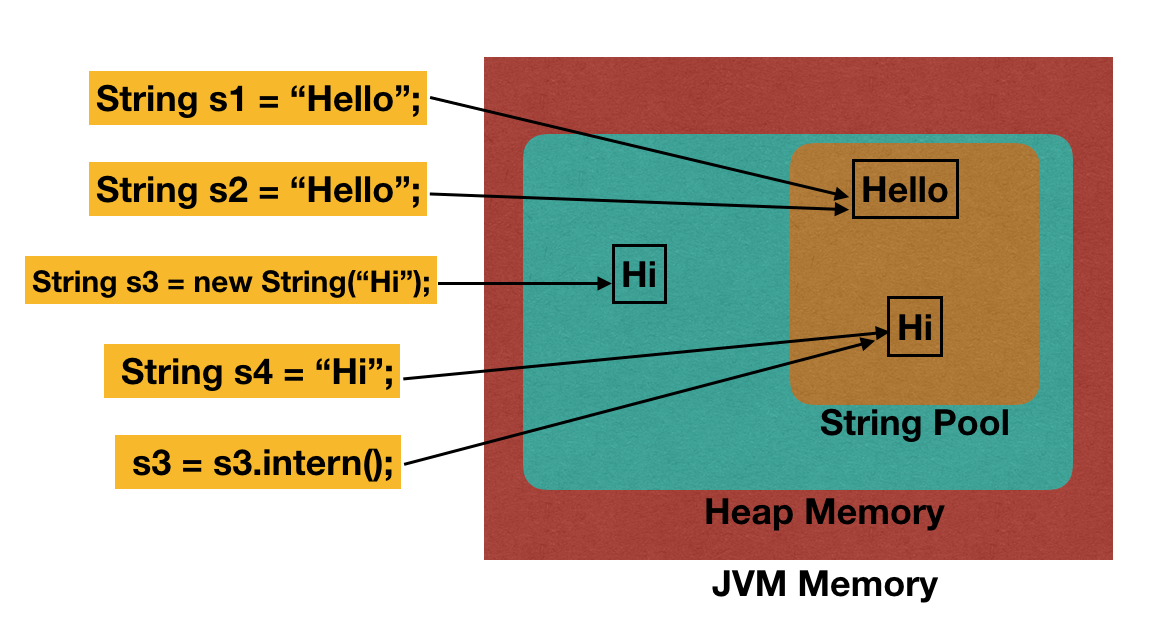Why Are Strings Immutable in Java? Comprehending the Core Principles
Why Are Strings Immutable in Java? Comprehending the Core Principles
Blog Article
Immutable Strings: A Key Part in Ensuring Data Uniformity and Dependability
In the realm of data management, the relevance of unalterable strings can not be overstated. These imperishable sequences of personalities play a crucial duty in supporting the integrity and precision of info within systems. By maintaining a state of immutability, data uniformity is made sure, cultivating a structure of dependability upon which essential procedures depend. The principle of unalterable strings transcends simple triviality; it is a cornerstone in the complicated internet of data administration. As we check out the benefits, application techniques, and useful applications of unalterable strings, a clearer photo emerges of their important nature in securing the electronic landscape.
The Concept of Unalterable Strings
Unalterable strings, a fundamental idea in programs, refer to strings that can not be changed as soon as they are developed. Fundamentally, once a string value is designated, any procedure that shows up to customize the string in fact creates a new string. This immutability guarantees data consistency and reliability in applications, as it protects against unexpected changes to the initial information.
Benefits in Information Consistency

Data uniformity is important in different aspects of software development, consisting of data source administration, multi-threaded settings, and dispersed systems (Why are strings immutable in Java?). Unalterable strings contribute considerably to achieving this uniformity by protecting against data corruption as a result of concurrent access. In scenarios where several procedures or strings interact with the same information simultaneously, immutable strings serve as a safeguard versus race problems and synchronization concerns
Furthermore, the immutability of strings simplifies debugging and testing procedures. With immutable strings, designers can rely on that when a string is set, it will certainly continue to be unmodified, making it much easier to trace the resource of errors and ensuring that test cases create regular outcomes. This reliability in data dealing with ultimately brings about much more durable and steady applications.

Executing Immutable Strings
Ensuring the immutability of strings calls for a thoughtful technique to their implementation in software program advancement. Once a string object is created, one crucial strategy is to design string classes in a method that stops alterations. By making strings immutable, developers can boost data consistency and reliability in their applications.
To implement unalterable strings efficiently, designers must prefer producing brand-new string things instead of modifying existing ones. This technique makes sure that once a string is designated a worth, it can not be altered. Furthermore, any kind of procedure that appears to customize the string needs to create a new string with the preferred adjustments rather than altering the original.
In addition, making use of unalterable strings can simplify concurrency administration in multi-threaded settings. Because unalterable strings can not be changed after production, they can be securely shared among numerous strings without the risk of information corruption.
Duty in Reliability Assurance
In software growth, the application of unalterable strings plays a critical function in ensuring the integrity of data operations. Immutable strings, when developed, can not be customized, guaranteeing that the information they represent continues to be regular throughout the application's implementation. This immutability building offers a degree of guarantee that the data being refined will certainly not be unintentionally altered, resulting in unexpected results or errors in the system.
By incorporating immutable strings right into software application layout, designers can boost the integrity of their applications by decreasing the threats connected with mutable information - Why are strings immutable in Java?. Unalterable strings help in avoiding information corruption or unexpected modifications, which can be particularly important when taking care of delicate details or when data stability is vital
Additionally, using immutable strings streamlines concurrent processing, as multiple strings can safely accessibility and share string data without the threat of one string changing the material while one more reads it. This element contributes considerably to the overall integrity of the software program system, ensuring predictable and constant actions in data managing procedures.
Applications and System Integration
The seamless assimilation of unalterable strings into different applications and systems is crucial for making sure robust data consistency and integrity across diverse technical settings - Why are strings immutable in Java?. Unalterable strings play a vital function in improving the honesty of data exchanges and directory interactions within facility software application environments. By including unalterable strings right into applications, developers can alleviate the threats connected with information tampering, unauthorized alterations, and inadvertent modifications, thus fortifying the total safety and security posture of the system
In the context of system integration, unalterable strings work as a fundamental component for establishing safe and secure communication networks and promoting smooth data transfers between different components. Their immutable nature makes sure that data sent between systems stays proven and unmodified, lowering the chance of inconsistencies or errors that might jeopardize the stability of the entire system. Additionally, immutable strings can improve interoperability in between disparate systems by offering a standardized style for data depiction, allowing extra effective data processing and exchange procedures throughout interconnected systems. By taking on immutable strings in applications and system combination processes, continue reading this companies can strengthen their data facilities and maintain the integrity and uniformity of their details assets.
Final Thought
To conclude, unalterable strings play a vital role in maintaining information consistency and integrity in numerous applications and system combinations. By making sure that strings can not be transformed as soon as developed, the integrity of data is maintained, decreasing the threat of errors and incongruities. Applying unalterable strings can substantially enhance the integrity of systems, inevitably causing more exact and trustworthy information handling.

Report this page